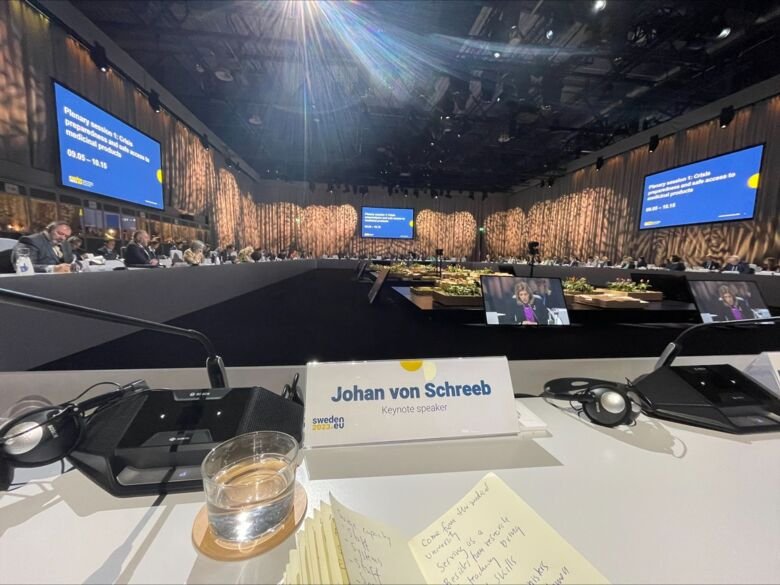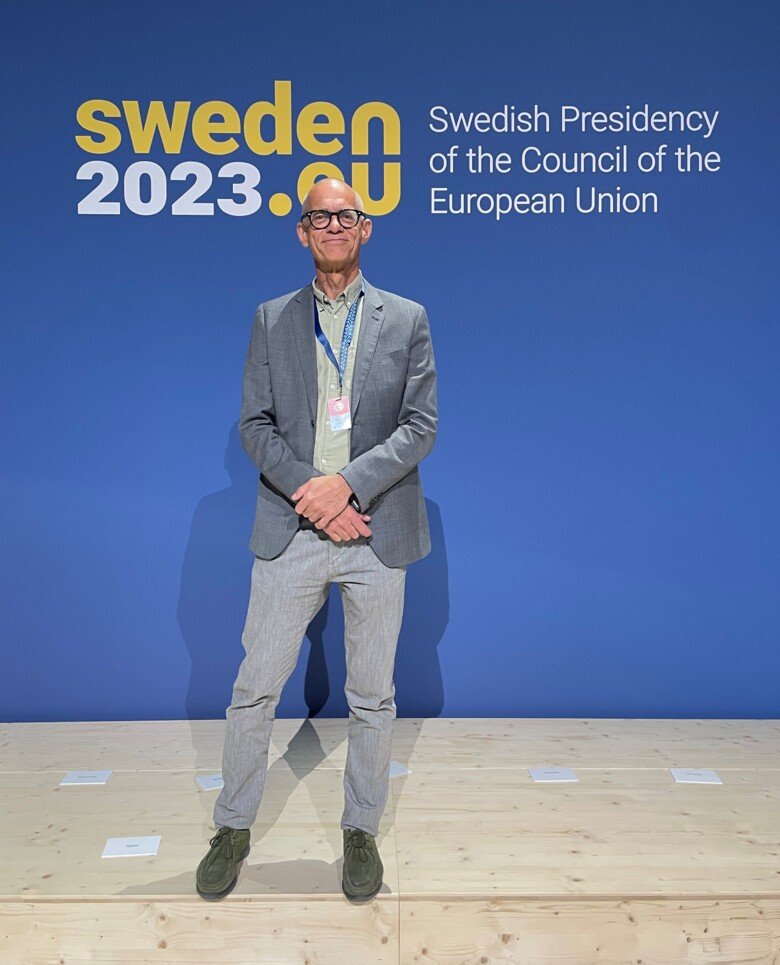Johan von Schreeb busts myths at EU health ministers’ meeting

Are international field hospitals always needed? And do we always need to send medicines to disaster-stricken areas? These were two myths that Johan von Schreeb discussed in his keynote when EU’s health ministers gathered in Stockholm.

During the first six months of 2023 Sweden holds the presidency for the Council of the EU. As part of that, all the EU countries’ health ministers were invited to an informal meeting in Stockholm on the 4th and 5th of May. The meting concerned issues of preparedness and securing access to innovative and established medicines.
Johan von Schreeb, Professor of Disaster Medicine at Karolinska Institutet and director of both the Centre for Health Crises and the Centre for Research on Health Care in Disasters, delivered the keynote speech when the second day of the meeting began on the 5th of May.
Analyse first, to avoid myths
When a disaster or health crises occurs, it instantly triggers a number of notions of what should be done, according to Johan von Schreeb. Such notions include for example that international field hospitals are always needed and that medicine should always be donated.
Even if that is sometimes the case, it is important to first analyse the context and the needs where the disaster or crisis occurs, to prevent actions from being carried out based on myths or preconceived notions. To illustrate this, Johan von Schreeb used examples from the earthquake that hit Turkey in February 2023, where he worked on site coordinating international relief efforts. In Turkey only 10% of the burden of injuries or disease were directly related to the earthquake, which decreased the need for, for example, international field hospitals equipped for trauma care. On the other hand, 63% of the burden of injury and disease was not directly related to the earthquake but consisted of things such as maternal care or pre-existing health conditions like diabetes.
A combination of heart and head leads to the best results
Johan von Schreeb’s concluding message to the health ministers and other attendees was to not forget that good intentions are important, but they must be combined with an analysis of context and needs.
Further KI participation in the meeting
Later the same day another KI professor was also invited to speak at the meeting. Richard Rosenquist Brandell, senior physician, and professor of clinical genetics at the Department of Molecular Medicine and Surgery, and director of the national initiative Genomic Medicine Sweden presented Sweden’s strategy for implementation of precision medicine.
